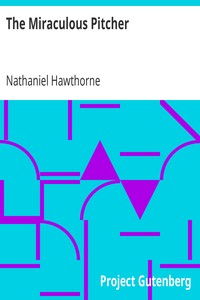| Summary |
"The Miraculous Pitcher" by Nathaniel Hawthorne is a charming short story that is part of a larger collection titled "A Wonder-Book for Girls and Boys," written in the 19th century, specifically during the American Romantic period. This tale is a whimsical exploration of themes like hospitality, kindness, and the contrast between good and evil, using a mythical framework. The story combines elements of folklore with moral lessons, making it suitable for both children and adults who enjoy moralistic narratives. The plot revolves around two kind-hearted old people, Philemon and Baucis, who live in a humble cottage. One evening, they encounter two travelers, including a seemingly ordinary but light-hearted youth named Quicksilver, and a wise elder. Showcasing their innate generosity, they offer hospitality despite their modest means. Miraculously, their meager provisions transform into a feast, with endless milk flowing from a pitcher and their simple bread becoming exquisite. In a twist of fate, the young couple’s kindness is rewarded when the travelers reveal themselves as divine figures, prompting the couple to wish for eternal love and companionship. Upon their request, the couple is transformed into trees, intertwining their lives forever. The story serves as a testament to the power of kindness and the notion that sincere hospitality can yield profound and magical outcomes. (This is an automatically generated summary.)
|

